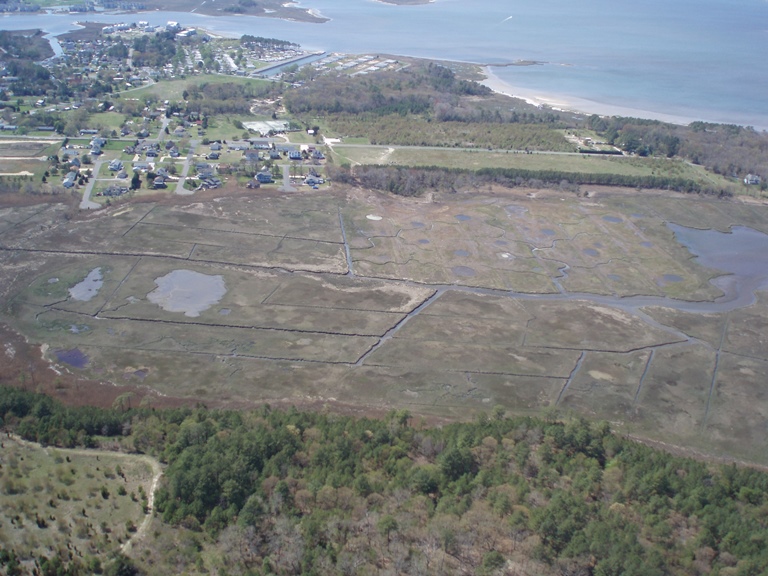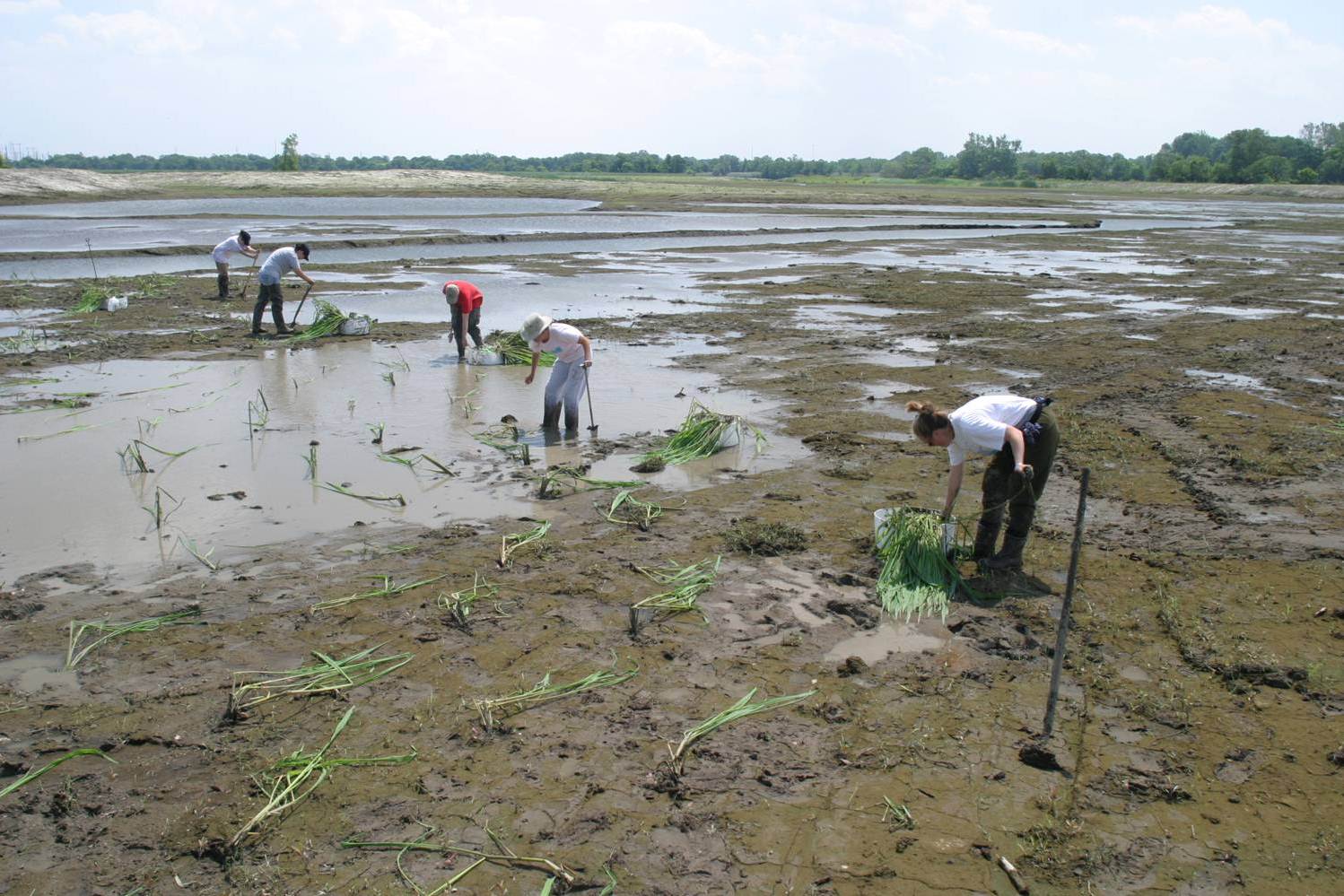The Mosquito Control Section helps to control mosquito populations by improving and managing wetlands in oreder to increase fish and wildlife populations and restore previously altered wetland habitats to a healthier condition. These wetland systems, when properly functioning, help to create a natural check on mosquito populations. Successful wetland management can help reduce the need to use chemical treatments to control mosquitoes.
 Open Marsh Water Management has been used successfully to control mosquito populations in Delaware since 1979. Since then, more than 4,000 acres of mosquito-producing marsh have been treated with Open Marsh Water Management systems. More than 750 acres are now managed to control mosquitoes in the Inland Bay marshes from Rehoboth to Fenwick Island and more than 3,000 acres in the Delaware Bay Marshes from Little Creek to Lewes.
Open Marsh Water Management has been used successfully to control mosquito populations in Delaware since 1979. Since then, more than 4,000 acres of mosquito-producing marsh have been treated with Open Marsh Water Management systems. More than 750 acres are now managed to control mosquitoes in the Inland Bay marshes from Rehoboth to Fenwick Island and more than 3,000 acres in the Delaware Bay Marshes from Little Creek to Lewes.
Open Marsh Water Management, A Source Reduction Technique for Mosquito Control
Guidelines for Open Marsh Water Management in Delaware’s Salt Marshes
Open Marsh Water Management in Delaware: 1979-2007 (Proceedings of the New Jersey Mosquito Control Association)
 The Delaware Mosquito Control Section works to restore and enhance wetland habitats with our Northern Delaware Wetland Rehabilitation Program (NDWRP). The NDWRP is a collaborative partnership between DNREC’s Division of Fish and Wildlife and other natural resource agencies. Together, we’re working to restore up to 10,000 acres of degraded urban wetlands along the Christina River/lower Delaware River corridor.
The Delaware Mosquito Control Section works to restore and enhance wetland habitats with our Northern Delaware Wetland Rehabilitation Program (NDWRP). The NDWRP is a collaborative partnership between DNREC’s Division of Fish and Wildlife and other natural resource agencies. Together, we’re working to restore up to 10,000 acres of degraded urban wetlands along the Christina River/lower Delaware River corridor.
NDWRP’s current project is the marsh restoration at the Peterson Urban Wildlife Refuge in Wilmington. The restoration has included the removal of Phragmites, an invasive reedy plant that takes over an area and limits the native vegetation that provides habitat for native animals, removing decades of old fill material associated with the construction of I-95, restoring tidal exchange with the Christina River, planting native trees and shrubs, and improving recreational and educational opportunities through trail creation and educational signage.
Related Topics: dfw, fish, fish and wildlife, Health and Safety, mosquito, mosquito control, wildlife